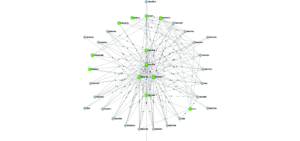“The Conscious Mind” by David Chalmers
The Conscious Mind is a 20+ year old book, which I got vectored back to recently. I’ll admit that left me cold, so much so that I couldn’t bring myself to finish it. I got bogged down in the Can Consciousness Be Reductively Explained section, and even granting his ground rules
I am not concerned here with whether or not conscious experience would in fact arise; I suspect that in fact it would, as I argue in Chapter 7. All that matters here is that the idea that such a system lacks conscious experience is coherent
I found it unconvincing that qualia cannot be a necessary outgrowth of our chemical and physical structure, despite Chalmers many arguments to the contrary. My reasoning is that it’s uncontroversial to say that we don’t yet have any handle on the complexity of our brain’s structure and the inherent functionality it instantiates, both qualitatively and quantitatively.This is partly because the level of feedback loops and interconnectivity of our protein networks is mind boggling. Here’s an extremely small subset drawn by Harvard’s Bioplex program on 26 August 2018
Additionally, the protein network is the substrate upon which the connectome is based. From wikipedia
The human cerebral cortex alone contains on the order of 10e10 neurons linked by 10e14 synaptic connections.[17] By comparison, the number of base-pairs in a human genome is 3×10e9.
When you’ll faced with this quantity of interactions connected with that level of complexity, combined with may levels of feedback. I find it impossible to a priori dismiss that the presence of qualia isn’t a necessary outcome of these physical contacts and interactions (aside: when I’ve analyzed the connectivity of these feedback mechanisms, it’s not just feedback on top of feedback like you’d find in a congenitally well designed modular system, but also has feedback into the center of another feedback loop — posing a non-trivial challenge to analysis, and certainly making them a great deal more complex than any a priori assessment we can make at this time).
I’ll admit that I haven’t looked to see how Chalmers may have revised his position as we have started to come to grips with the complexity of biology and how little we know of it. This post is a comment a single section of his 20+ year old book.


Leave a Reply